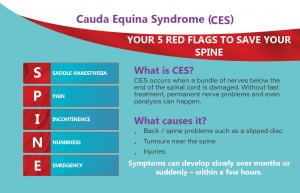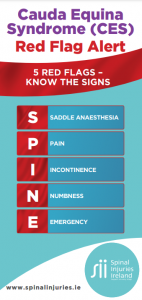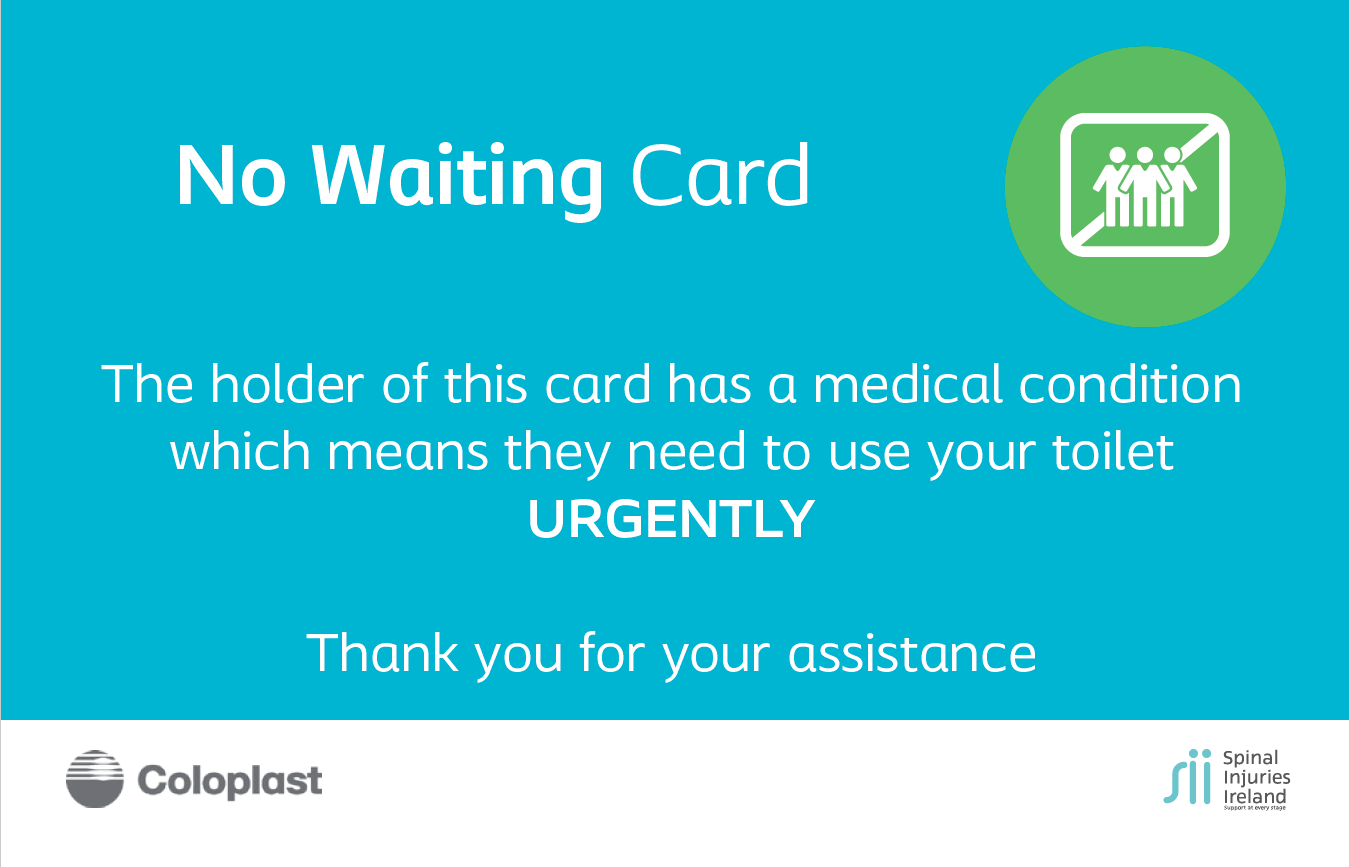There is a bundle of nerves below the end of the spinal cord known as the cauda equina. When they are damaged, it is known as Cauda Equina Syndrome (CES). The term cauda equina means ‘horse’s tail’ in Latin. It best describes the spray of nerves that come off the bottom of the spinal cord and activate the bladder, bowel, sexual organs and legs. When these nerves are compressed or damaged, the impact on the sufferer can be devastating. Signs and symptoms of CES include lower back pain, pain that radiates down the leg and loss of bowel or bladder control.
What causes CES?
- Back/Spine problems such as a slipped disc
- Tumours near the spine
- Injuries
What are the symptoms and warning signs of Cauda Equina Syndrome?
Cauda Equina Syndrome is rare and symptoms can be the result of other causes than those outlined above. However, it is extremely important to get any symptoms you have checked out as soon as you start to experience them.
SPINE – The 5 Five Red Flags of Cauda Equina Syndrome
S – Saddle Anaesthesia
Weakness, tingling or numbness in your ‘saddle region’ or the parts of your body that would touch the saddle if you were sitting on a horse – the upper inner thighs, groin, buttocks and genitals.
P – Pain
Pain, weakness, tingling or numbness in your lower back, backs of thighs, lower legs and feet.
I – Incontinence
Loss of control, urgency or finding it hard to pee or poo. Any strange sensation or numbness when you pee or poo.
N – Numbness
Numbness in your lower back, backs of thighs, lower legs and feet. Loss of feeling around your groin during sex.
E – Emergency
Any of these can be a warning sign of Cauda Equina Syndrome. If you start to experience any of these symptoms, go to your GP or Emergency Department without delay because delay can equal Disability.
How is CES diagnosed/treated?
An MRI is necessary to diagnose Cauda Equina Syndrome. It can then be treated with surgery to your spine. It is important to treat CES early to help avoid nerve-damage problems that can affect bladder, bowel and sexual function, lasting pain and potential paralysis.
Cauda Equina Syndrome - Printed Resources
Patient information leaflets and cards.
Spinal Injuries Ireland, in collaboration with Coloplast, have developed patient information leaflets and cards for the public and healthcare professionals, clearly illustrating the 5 RED FLAG WARNING SIGNS of CES.


Please email us at [email protected] or call us on (01) 653 2180 to request copies. Alternatively they can be printed directly from the above PDF’s .



